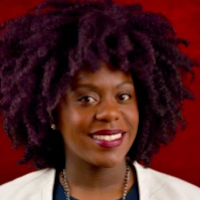 A new study by Chantal Hailey, an assistant professor of sociology at the University of Texas at Austin, finds that White, Asian and Latino parents in New York City all express strong racial/ethnic preferences in where to send their kids to high school. The study suggests that these preferences contribute substantially to school segregation in New York, which has one of the most racially segregated school systems in the country.
A new study by Chantal Hailey, an assistant professor of sociology at the University of Texas at Austin, finds that White, Asian and Latino parents in New York City all express strong racial/ethnic preferences in where to send their kids to high school. The study suggests that these preferences contribute substantially to school segregation in New York, which has one of the most racially segregated school systems in the country.
Dr. Hailey conducted an experiment with a racially diverse group of parents attending New York high school fairs. Families were asked to rank their preferences for a variety of hypothetical high schools. The school profiles included information on safety ratings, metal detector presence, graduation rates, and extracurricular activities. The profiles also included, but did not highlight, information about the racial/ethnic demographics of the schools. The goal was to discern how large a role the racial/ethnic information played when families were selecting among otherwise similar schools.
Dr. Hailey found that when White, Asian, and Latino parents were presented with the choice of otherwise similar schools that were majority Black, majority White, majority Latino or mixed, the racial/ethnic demographics directly influenced their preferences. But Black parents showed no statistically significant preference for any of the schools based on racial/ethnic composition.
“Part of what’s going on is White parents living in a diverse city who don’t send their kids to Black neighborhood schools,” said Dr. Hailey. “But the choices and preferences of nonwhite parents also contribute to school racial and ethnic segregation.”
Dr. Hailey added that “people also draw on stereotypes about racial out-groups that are perpetuated in our education system, in particular negative stereotypes about Black students. There is also evidence that parents associate White schools with more resources, and Black and Latino schools with fewer. Those race-based stereotypes may drive preferences even when there’s data suggesting that there’s no actual disparity in resources.”
Dr. Chantal received a bachelor’s degree in sociology from Howard University in Washington, D.C. She holds a Ph.D. in sociology from New York University.
The full study, “Racial Preferences for Schools: Evidence from an Experiment with White, Black, Latinx, and Asian Parents and Students,” was published on the website of the journal Sociology of Education. It may be accessed here.


Hey Chantal,
It appears to me that your research findings is nothing new as it centers around NYC public schools. The racist and ignorant proclivities many White, Asian, and Latino NYC parents have about sending their “precious” children to school with a significant Black student population is not surprising at all by any measurable metrics.
Regarding your research, I would like to know did you also include in the fictional school profile the percentage of Black American teachers, the number of nationally board certified, etc? Let’s be clear Chantal, your research failed to even remotely mention the significant disparity in expectations for students who are visually identified as Black American. The facts remain, the only time Whites, Asians, and Latinos eagerly aspire to have a closeness with native Black Americans is when they’re entertaining in the music industry, playing basketball or football in the NCAA, NBA, or NFL.
Last, it’s very unfortunate that your contextual selection is peppered with nothing but politically correct and neoliberal verbiage which certainly doesn’t solve this ongoing problem. What happened to Black conscious intellectual honesty!
Despite the evidence, Black college professors and politicians will use the phrase “White supremacy”. Even though empirical evidence has repeatedly shown that Asians have MORE racial animus against Blacks that Whites, and so called Latinos have made it clear since the 1960s civil rights era that they do not want to have anything to do with Black people, Black professors and politicians just can’t seem to say the word “Black” without using “Black and Brown coalition”, “people of color”, etc. Again, the data clearly shows that those people don’t want to have anything to do with us but we refuse to let them fight their own battles and we continue to use the Black civil right blood to anoint them.